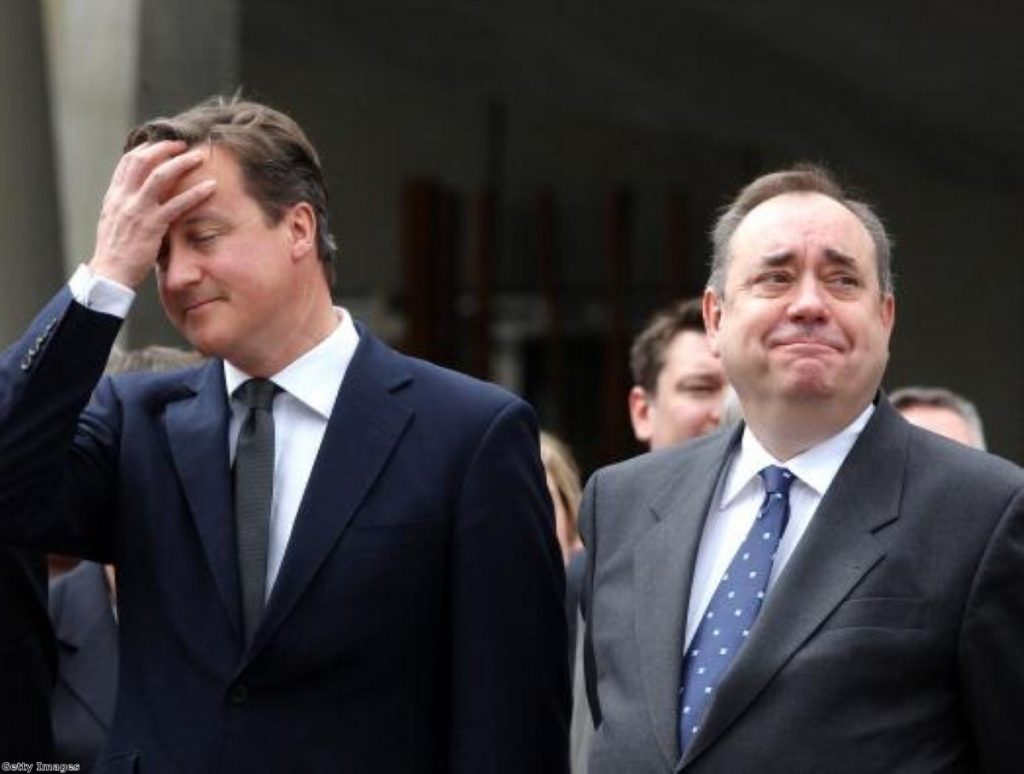Scottish independence: Overconfident London could rue the day
"Scottish voters and the SNP are very confident of the legal position," the SNP's Stewart Hosie told me in January. Back then his party was in confrontational mood, setting up the prospect of a constitutional clash in the courts between London and Edinburgh. He insisted: "The Scottish parliament can hold a consultative referendum which is on exactly the same terms as any other referendum held in the UK."
It hasn't worked out that way. As I suspected at the time, these threats were meant as a distraction to get maximum leverage out of the negotiations which both sides knew would take place behind closed doors. Over the last ten months the talks have slowly made progress, and now a deal has been reached.
They look like having been a big victory for the SNP. The whole point of the standoff in January was over who would be able to control the rules of the game. London was worried that a consultative referendum held by the Scottish parliament would allow the nationalists to set the terms of the debate – the question, the timing, the franchise – in ways which would boost their chances of winning.
Now we see that the constitutional standoff, which never made it into the courts, has been resolved in favour of the coalition government in Westminster. It will be the Commons which legislates to set up the referendum, not Holyrood. This might look like a strategic victory for the Scotland Office, but it is not. In order to secure agreement on which parliament controls the terms of the vote and ensure the vote is binding by excluding the third devo-max option, the Scottish government has wrung enough concessions from London that it has effectively got its way, anyway. The vote will be held in autumn 2014, when Alex Salmond wanted. Sixteen- and 17-year-olds, most of whom are likely to support independence, will get the vote.


Those supporting independence should not get too cheerful, however. The failure to get 'civil Scotland' to coalesce around a decent set of proposals, needed to put a third 'devo-max' option on the ballot paper, means this is now all-or-nothing affair for Salmond and co. The signs are not good that he and his party can win the Scottish people over to a clean break.
After 2012 was spent agonising over the rules of the game, 2013 will spent getting the necessary legislation through both parliaments. That leaves a lot of time for the campaign to get underway – time for unforeseen events to change the terms of the debate, perhaps, and narrow the current gap in the polls. This year's jostling won't mean a thing if the campaign doesn't shift public opinion. But if it becomes a closer affair, the confidence with which London has made its important concessions to ensure a binding result could end up being very deeply regretted.









